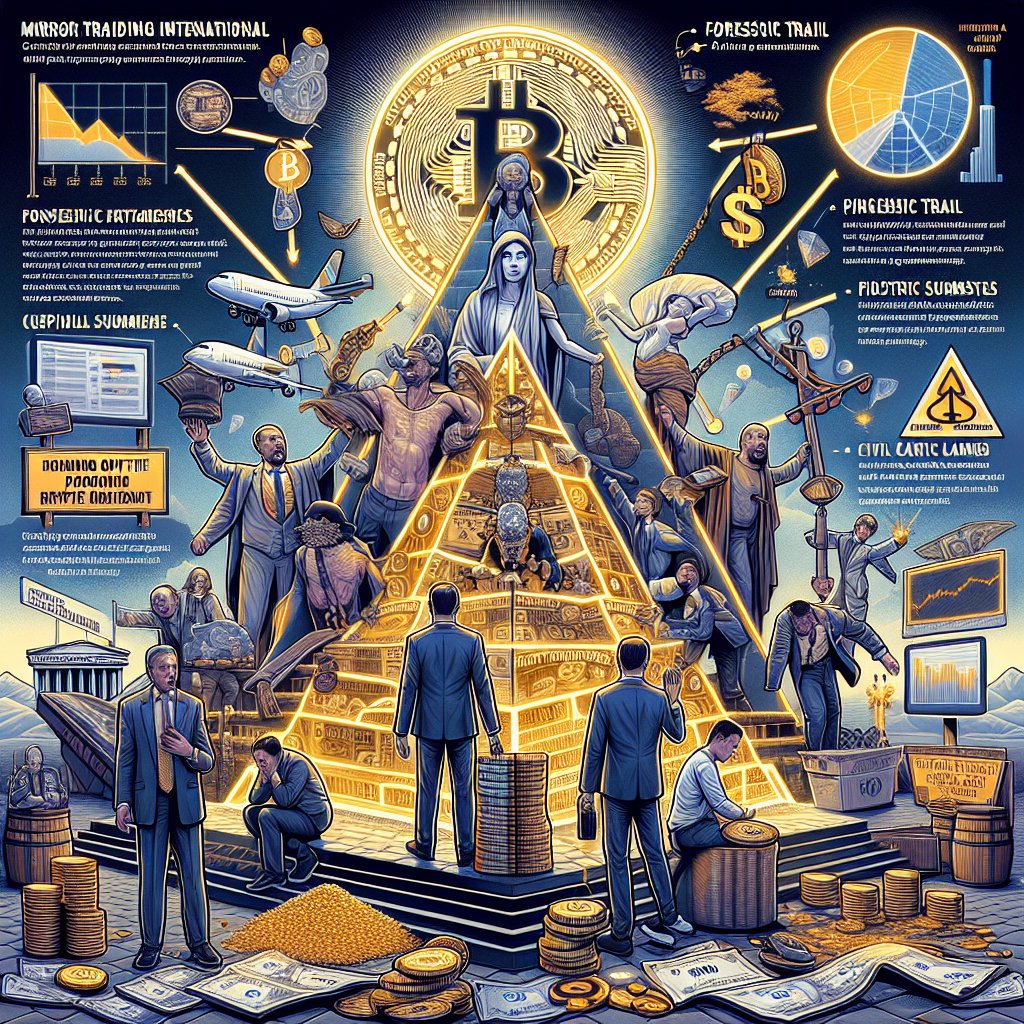Content created by AI
Mirror Trading International Scandal: Masterminds May Face Jail Time and Multi-Million Rand Penalties
In a significant turn of events that could set legal precedents and affect thousands of individuals globally, the operators behind what is known to be South Africa's largest pyramid scheme, Mirror Trading International (MTI), could potentially face severe criminal and civil repercussions. This development has been underscored by Pieter Walters, a senior associate at Barnard Incorporated Attorneys, in communication with MyBroadband.
Catalyst to a legal fiasco, MTI caught media attention as an enterprise offering lucrative returns through Bitcoin investments, claiming an average monthly yield of 10%. Its explosion in membership, particularly during the pandemic lockdown in 2020, has now resulted in it being formally identified as a Ponzi-type structure by Acting Judge Alma de Wet of the Western Cape High Court in April 2023.
Notwithstanding repeated attempts by Clynton Marks, former MTI referral programme head and substantial shareholder, to challenge this ruling through appeals—both denied—the National Prosecuting Authority (NPA) maintains its stance, unaffected by the appeal processes. This reflects the judicious barrier enacted against impunity for illicit financial dealings, conforming to the broader regulatory frameworks that govern corporate misconduct in South Africa.
Pending civil litigations stand against MTI directors, invoking the Companies Act's Sections 76(3), 77, and 218(2), among others. These provisions, constitutive of the South African legislative bulwark against corporate malfeasance, could empower liquidators to recover substantial assets for the redress of aggrieved parties.
The forensic trail unveiled by the Financial Sector Conduct Authority (FSCA) points to the suspicious operational mechanics of MTI, which include alleged transactions exceeding 29,421 bitcoins, albeit sources close to the matter allege the number to be in the vicinity of 46,000 bitcoins.
MTI's blockchain adventure meets a conflicting end as participants grapple with the legal nullity conferred upon their participation agreements by Judge de Wet's ruling. The case highlights not only the risky nature of investment in decentralized cryptocurrencies but also the perils of regulatory evasion.
Victims of the scam find recourse in submitting claims with the liquidators, though the complexities of the Insolvency Act's provisions dictate a nuanced approach to the administration of these claims, imposing a sophisticated, equity-focused mechanism of restitution rather than a simplistic reimbursement.
Amid the legal whirlwind, the hard knock of justice is becoming increasingly audible to those entwined in the treacherous web that MTI has spun. As civil summonses are issued and claims are processed, the MTI scandal echoes as a sobering account of the volatility and potential for malfeasance lurking in emerging financial systems.










